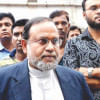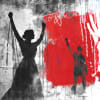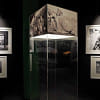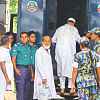Try Jamaat for crimes against humanity
Experts yesterday called upon the government to ensure trial of Jamaat-e-Islami as an organisation for committing war crimes during the Liberation War.
Academics and researchers, also witnesses to the 1971 war, from home and abroad, urged the international community to build a coalition to try former Pakistani military men for being instrumental in carrying out gruesome genocide.
The call was made on the concluding day of the two-day international seminar titled “1971: Genocide-Torture and Liberation War”. Centre for Genocide-Torture and Liberation War Studies and Bangladesh Itihas Sammilani jointly hosted the event at the Bangla Academy.
At the programme, experts from the USA, the UK, India, Cambodia and Bangladesh conducted five scholarly sessions on the relevance and meaning of genocide.
War crimes researcher Shahriar Kabir said the government has been trying individuals for crimes against humanity. “Time has come now to try Jamaat and other similar Islamist parties who had committed genocide in the name of religion in 1971.”
In this regard, he referred to the Nuremberg trials held between 1945 and 1949 when a tribunal not only tried individuals, but also pronounced verdicts against seven organisations and their leaders, including top leaders of Nazi Party, for committing war crimes.
“Jamaat should be tried in a similar way. It's the need of time,” Shahriar added.
He requested foreign experts to write on what had prompted them to support Bangladesh in 1971 and tell those stories to the country's future generations. He also urged the Bangladesh government to grant honourary citizenship to the experts.
Also president of Ekatturer Ghatak Dhaka Nirmul Committee, Shahriar reiterated that the government should launch an official initiative to gain UN recognition of the 1971 genocide.
The Nirmul Committee was working to set up an international commission to bring the perpetrators of “Rohingya genocide” to book and it was collecting testimonies from Rohingyas, he added.
Historian Prof Muntassir Mamoon, also the president of 1971: Genocide-Torture Archive and Museum Trust, said people have to possess a similar kind of spirit like that of freedom fighters' during the Liberation War, which had inspired the war heroes to liberate the country and achieve a goal.
US social worker Thomas A Dine, Prof Jayanta Kumar Ray of India, Julian Francis of the UK, and Brig (retd) RP Singh of India shared their fond Liberation War memories with the audience.
RP Singh said they had fought side-by-side with Bangladeshi freedom fighters during the war and they now want to be a friend of Bangladesh during peace time.
More than 100 Pakistani military personnel, who had committed genocide in 1971, can still be put on trial, he added.
Lt Col (retd) Quazi Sajjad Ali Zahir Bir Protik and Cambodian war crimes researcher Man Sokkoeun also spoke.
Later, the 4th annual conference of Bangladesh Itihas Sammilani was held at the same venue.

 For all latest news, follow The Daily Star's Google News channel.
For all latest news, follow The Daily Star's Google News channel. 








Comments